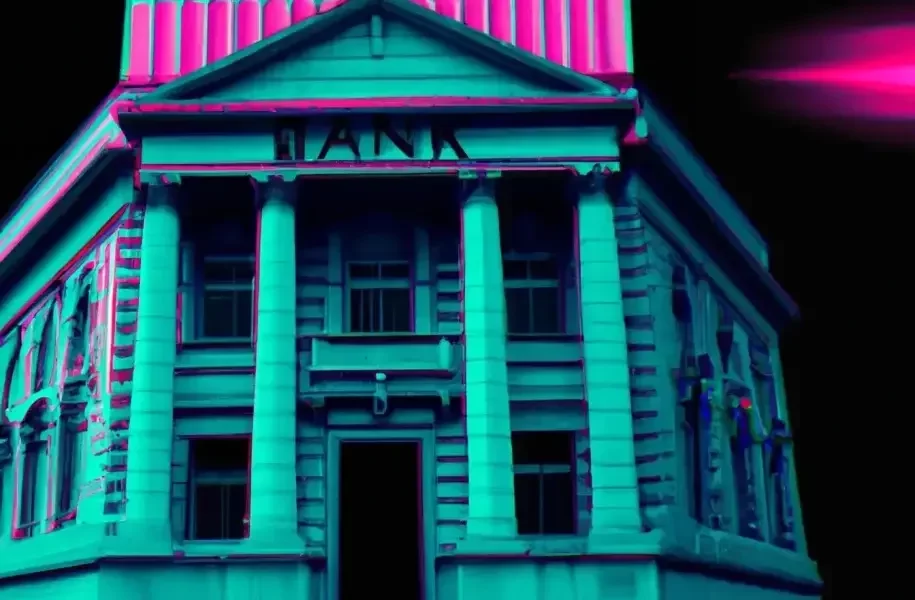Virtual Banks May be a Better Service Option for Web3 Companies
09.08.2024 20:30 1 min. read Kosta Gushterov
Hong Kong's virtual banks are at a pivotal moment, currently holding just 0.3% of all retail banks' assets and occupying a negligible share of the financial market.
According to the South China Morning Post (SCMP), Hong Kong legislator Johnny Ng Kit-chong, a proponent of cryptocurrencies, believes virtual banks have untapped potential to better serve companies in the Web3 sector.
He noted that while the government has made progress in developing virtual banks and improving services, these institutions have a crucial opportunity to contribute significantly to the Web3 sector in the coming years.
A major obstacle facing virtual banks in Hong Kong is the difficulty in opening accounts for companies dealing in cryptocurrencies, non-fungible tokens (NFTs), and blockchain technologies.
A recent SCMP survey found that 40% of these companies face significant challenges, citing strict standards and local barriers as major issues. These difficulties have led some businesses to relocate to more supportive regions, potentially hindering digital innovation in Hong Kong.
Despite these challenges, Johnny remains optimistic about the future of virtual banks, highlighting their “huge” potential if supported by a clear government strategy to develop the Web3 sector.
He also suggested exploring the possibility of integrating Bitcoin into Hong Kong’s financial reserves, viewing it as a potential hedge against inflation and a strategic asset for the region’s economic stability.
-
1
Grayscale Launches Staking for Ethereum and Solana Trusts in Landmark Move
06.10.2025 15:40 1 min. read -
2
Coinbase Unlocks Millions of Onchain Assets With New DEX Trading Integration
09.10.2025 9:00 2 min. read -
3
Binance Promises Compensation After Market Meltdown Hits Users
11.10.2025 20:00 2 min. read -
4
Ethereum Powers Bhutan’s New Digital Identity Revolution
14.10.2025 13:00 2 min. read -
5
Emerging Markets Could Drive $1 Trillion Shift Into Stablecoins, Says Standard Chartered
06.10.2025 16:00 2 min. read
Asian Exchanges Reject Bitcoin Treasury Strategies Amid Volatility Concerns
Major stock exchanges across Asia are increasingly rejecting companies that aim to adopt digital-asset treasury strategies, citing concerns over market volatility.
FalconX Acquires 21Shares to Expand Crypto ETP Offerings
FalconX, a leading crypto prime broker, is set to acquire 21Shares, the world’s largest issuer of crypto exchange-traded products (ETPs).
Fed’s New Plan Could Finally End Crypto’s Banking Nightmare
After years of tension between digital asset firms and traditional finance, the U.S. Federal Reserve is quietly exploring a change that could reopen long-closed doors.
Citi Initiates Coverage on Strategy (MSTR) with $485 Price Target, Calls It a Leveraged Bet on Bitcoin
Crypto-related stocks have increasingly become a bridge between traditional equity markets and digital assets, allowing investors to gain indirect exposure to Bitcoin, Ethereum, and the broader blockchain economy without holding tokens directly.
-
1
Grayscale Launches Staking for Ethereum and Solana Trusts in Landmark Move
06.10.2025 15:40 1 min. read -
2
Coinbase Unlocks Millions of Onchain Assets With New DEX Trading Integration
09.10.2025 9:00 2 min. read -
3
Binance Promises Compensation After Market Meltdown Hits Users
11.10.2025 20:00 2 min. read -
4
Ethereum Powers Bhutan’s New Digital Identity Revolution
14.10.2025 13:00 2 min. read -
5
Emerging Markets Could Drive $1 Trillion Shift Into Stablecoins, Says Standard Chartered
06.10.2025 16:00 2 min. read
According to Rekt Capital, Virtuals Protocol (VIRTUAL/USDT) is nearing a pivotal technical juncture after months of battling persistent downtrend pressure.
Virtuals Protocol (VIRTUAL), a leading AI crypto token, faced a sharp decline after a critical security vulnerability was publicly disclosed by blockchain researcher known as "jinu".
Visa has partnered with Coinbase to enable eligible debit card users to instantly deposit and withdraw funds on the exchange.
Wirex, a leading Web3 financial app, has made headlines with its new partnership with Visa, a major player in global payment technology.
Visa is expanding its crypto payment capabilities through a new partnership with Singapore’s dtcpay.
Visa has taken another major step in building out its onchain payments network, announcing support for three new stablecoins and two additional blockchains.
World Network, formerly known as Worldcoin, is reportedly in advanced discussions with Visa to launch a new stablecoin wallet that would seamlessly integrate crypto-native features into Visa’s vast global customer base.
Visa has unveiled a pilot project designed to test how stablecoins can be integrated into its global payments network.
Visa reported over $200 million in stablecoin settlements during Q2 2025, a milestone in its growing commitment to digital asset infrastructure.
Visa has introduced the Tokenised Asset Platform (VTAP), allowing financial institutions to create and manage fiat-backed tokens, including stablecoins and tokenized deposits.
VisionSys AI Inc. has unveiled an ambitious new initiative that could reshape the way corporations manage digital assets.
Vitalik Buterin has addressed concerns regarding Ethereum's dedication to decentralization following remarks from Péter Szilágyi, a key developer on the team.
Vitalik Buterin, Ethereum's co-founder and leading figure, has addressed criticism regarding significant ETH sales executed by the Ethereum Foundation.
Vitalik Buterin has addressed criticisms from Kyle Samani of Multicoin and other commentators about Ethereum’s efficiency and decentralization.
Ethereum co-founder Vitalik Buterin has responded to growing concerns about the security of Layer 2 (L2) networks after claims surfaced that these networks could potentially allow fund theft.
A pygmy hippopotamus named Moo Deng, known for her charming personality and viral internet fame, now has a new and unexpected sponsor—Vitalik Buterin, the co-founder of Ethereum.
Ethereum’s co-founder Vitalik Buterin has called for changes to the current staking requirements in an effort to encourage more solo stakers on the network.


